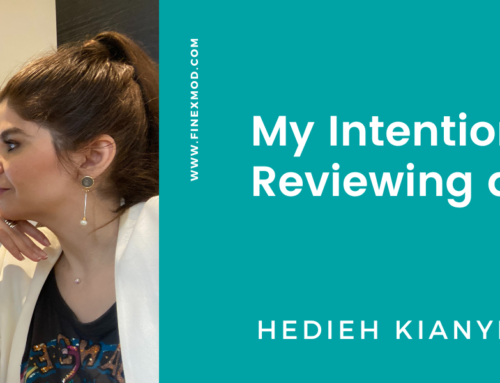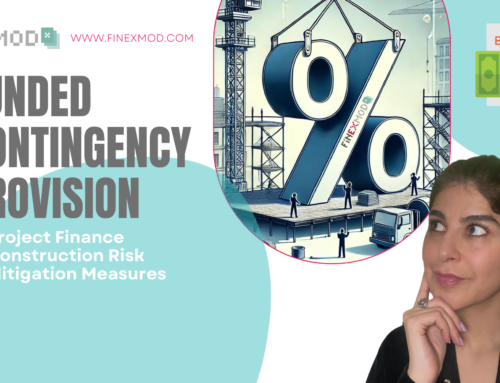My dear younger self,
You have come to a point in your life where you must decide whether to remain on the academic career path you thought you were destined for or to step into the exciting world of applied project finance and become a financial modeler.
Go to your black notebook that has your list of favorite movie quotes. Highlight the one from your favorite movie, Revolver: “There is no such thing as problems, Mr. Green, only situations.” Let me share how you will come out of this situation you are in right now and why you will choose financial modeling:
1. You are a structured and organized person.
As a financial modeler, you have to work on several projects at the same time. Sometimes you work on 15 projects simultaneously. Not all of them will progress at the same pace, but still, you must be up to date on all these projects. Read the zillions of project documents, keep up with the meetings, and go for site visits and different rounds of negotiations. Being organized will help you manage your time across all the projects. You will create financial models that are well structured and easy to follow and understand. You will receive lots of appreciation from the users of your models, and this will boost your ego but in a good way.
2. You are a people person and can easily get along with everyone.
In each project, you will deal with people from different backgrounds and positions. You will work with a team of lawyers, accountants, technical experts, bankers, and government officials. You will need their inputs for your model, and they will use your financial model to evaluate the project from their own perspective. I just recommend that you read the book How to Deal with Difficult People because you could use its tips along the way!
3. You are flexible.
This will be quite handy because nothing is certain in this world. Always attach probabilities to the things people discuss with you. Let me give you an example: I have been working on a project that is still at the development stage, but it is almost ready for financial closure. So far, the general assumption was that we had full tax exemptions and that had been the understanding since the day I started working on the project four years ago. One month ago, when we started negotiating the annexes of the concession, we couldn’t get the exemptions and I had to build all the tax components in the model under a tight deadline. Fortunately, I had already modeled most of the typical taxes; I just had to activate them and make minor changes to align my model with the tax regime. You will understand soon enough how to keep the balance between simplicity and flexibility. It is all about strategically choosing what is important.
4. You are suspicious.
In the story I just shared, being suspicious led you to not immediately believe in everyone’s words and promises of tax exemptions. You will use this to your advantage, even in your personal life, but I will tell you more about this in another platform. You will always question the data that you receive and try to look at the “what if” scenarios.
5. You are a problem solver.
When you are faced with a situation, your mind systematically goes for finding solutions and exploring different options. You will work with Excel a lot, and you will appreciate its abilities to simplify complex realities in your financial models and to make forecasts using not your sister’s crystal balls but your own logic.
6. You are accurate.
And you can use this to your advantage while preparing the inputs to feed into your model. In this stage of a project, you will need your people skills as well as research skills to get the appropriate data and select what is appropriate for a specific project. Especially at the early stages of a project, you will not have all the information you need and you cannot make up numbers, unless you are preparing a case study for a training (and you will be doing a bunch of them). So you need to use the skills you have developed during all the years at university to browse through articles and different online databases to fetch the appropriate data that is missing in project documents.
7. You are honest.
One of the reasons why you are hesitating to change your path is you think that what you have now is safe and, especially in the financial world, you will be faced with sharks and wolves. But it is not as bad as they pictured it in the movies. You know better than I do that greed, competition, and jealousy also exist in the academia—actually, in every domain—so don’t decide based on fear.
Take it from me: You will still be honest but no longer naive. You will be transparent with your work and will not hide any information, whether sheets, rows, or macro codes. However, you will learn the tricks of the trade. For a while, you will be on the lender’s side and act as the financial model detective. Later, you will be on the sponsor’s side, defending a project and your models in front of the same lenders you used to work for. Life is interesting, isn’t it?
8. You are lazy.
Even as a kid, you liked to pick stuff up with your feet so as not to bend over! Therefore, being inherently lazy, after you realize that a task is repetitive, you will find ways to automate it and save yourself time for other creative stuff.
9. You are generous.
Yes, my dear self, I know you are for free information and data for all. And you have suffered so much from not having access to the right resources and data. Things will even get worse, so enjoy all the free books you are downloading right now. Let me tell you a secret: Along the way, you will meet with an incredibly generous person by the name of Professor Edward Bodmer, who will share his knowledge and materials free of charge and upgrade you to a level that you wouldn’t even imagine was accessible.
10. You are passionate.
I know you are just taking your first steps into the world of financial modeling now, and it’s tough. But, once you get to balance your first balance sheet, you will become addicted to it and end up sitting at a terrace in Barcelona with a laptop working on models while drinking a glass of wine.
The picture is not all rosy and beautiful. You will face lots of challenges and have constant nightmares, but you will stop saying to yourself and your colleagues this damned phrase you keep on repeating now: “I want to quit.” You will stand still and become not stronger, but lighter.
Your upgraded version of yourself,
Hedieh


